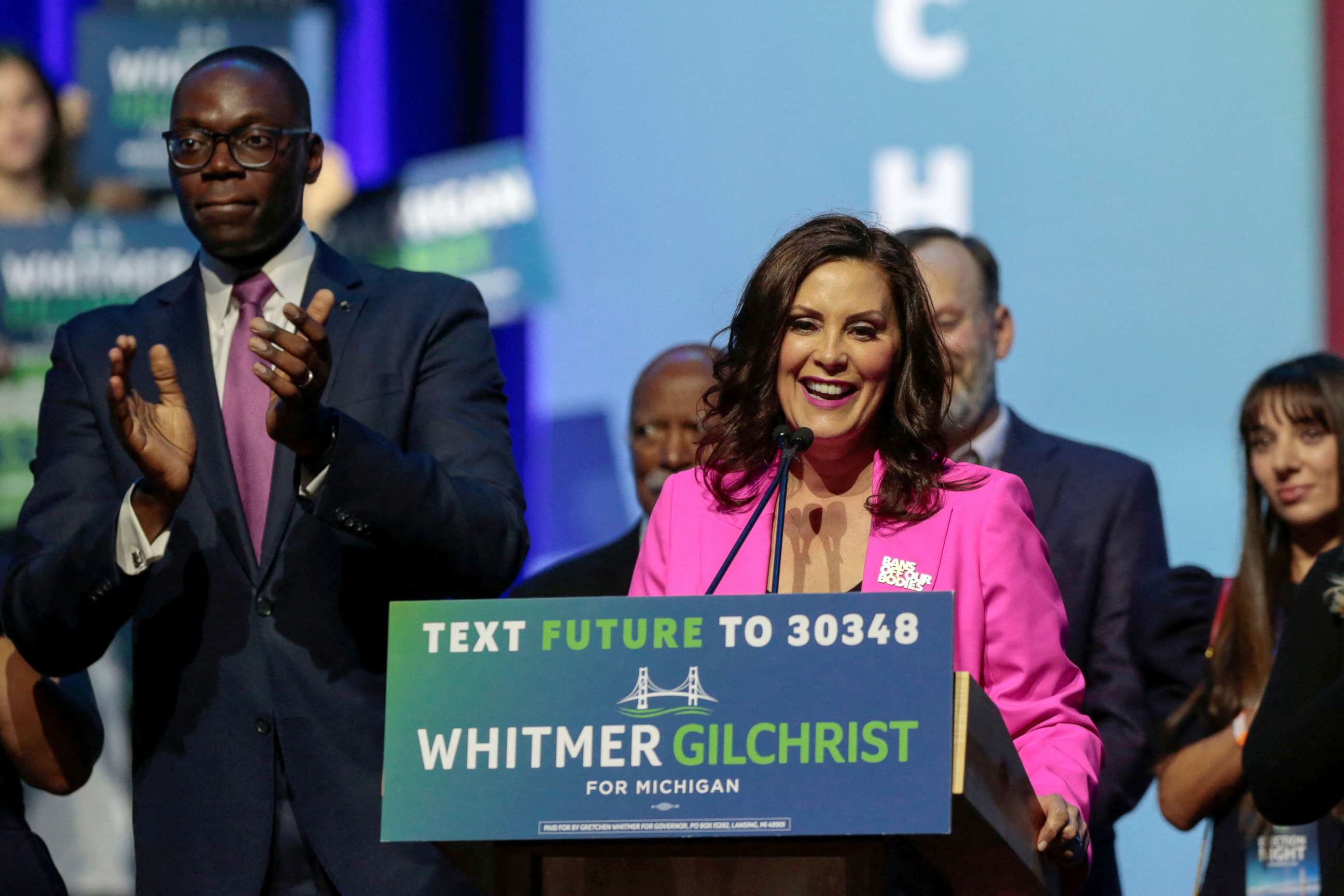Abortion rights supporters win big on state ballot initiatives
Anti-abortion advocates blame lack of money, weak candidates.
Abortion rights supporters won big in the midterms on Tuesday, racking up wins on several state ballot measures including in the swing state of Michigan and conservative Kentucky.
Their victories, which come on the heels of a similar win in Kansas this summer, frustrated anti-abortion advocates who accused several conservative candidates of refusing to tackle the issue head-on and challenge their Democratic opponents as extreme.
"We can do better," said Marjorie Dannenfelser, president of the Susan B Anthony Pro-Life America, in an online call with reporters.
Overall, abortion didn't beat out inflation as a top issue for voters. Yet, it still appeared to juice turnout in several key races that Republicans had hoped to cinch, including in Michigan and Pennsylvania where abortion factored heavily in the races for governor.
So far, five ballot measures have came down in favor of abortion rights.
In Vermont, California and Michigan, voters specifically enshrined the right to an abortion. The results were unsurprising in Vermont and California, blue states that protect access already.

But the ballot measure in Michigan -- a key battleground state -- quashed any prospects of GOP lawmakers passing abortion bans in the statehouse. The measure also rendered moot a ban that had been enacted before the Supreme Court decision and was tied up in the courts.
Putting the measure on the ballot seemed to give a boost to the Democratic ticket in the state, including incumbent Gov. Gretchen Whitmer, a staunch abortion rights supporter projected to keep her job.
"Abortion was on the ballot and abortion won," declared Alexis McGill Johnson, president and CEO of Planned Parenthood Federation of America and the Planned Parenthood Action Fund, in a call with reporters.
Kentucky was another blow to the anti-abortion movement, blocking their chances of enshrining the state's current abortion ban into its state constitution.
While Kentucky's current abortion ban remains in place, the rejection by voters now gives abortion rights proponents a legal opening to challenge it.
A separate ballot measure in Montana also failed; that proposal would have required that doctors provide life-saving medical care to an infant born alive regardless of the stage of development. Opponents argued it would have blocked palliative care for infants who were not expected to survive.
Dannenfelser blamed the Kentucky loss on a lack of money spent fighting on the issue and candidates who avoided the debate stage, a nod toward Sen. Rand Paul who declined to take on his Democratic challenger and still won handily. She said it was a similar problem in Pennsylvania, where even though abortion wasn't on the ballot, GOP candidate Mehmet Oz didn't champion the cause.
Preliminary exit polling found that 64% of Pennsylvania voters think abortion should be legal in all or most cases.
"Even though we wanted him to win, and we broke our backs helping him to win, he did a very poor job of saying what he would do if ... elected for the people of Pennsylvania," she said of Oz.
Abortion rights seemed to be a factor in North Carolina, too, where Democrats fended off a supermajority of Republicans in the state legislature. That leaves Democratic Gov. Roy Cooper with veto powers over any abortion bans passed by the GOP-led statehouse.
The wins seemed to embolden abortion rights supporters who said they would continue to push the issue at both the state and federal level.
"Every person deserves the power to make personal medical decisions during pregnancy, and we won't stop fighting until that vision is a reality across the country," said Anthony D. Romero, executive director of the American Civil Liberties Union, in a statement Wednesday.




